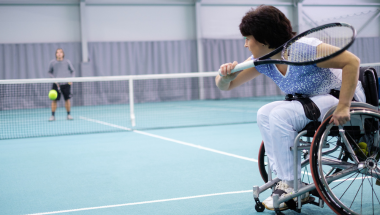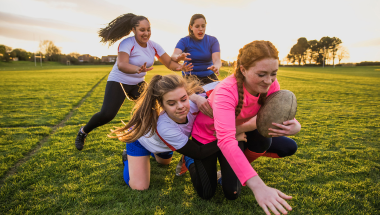Wellbeing and mental health directory

Places to look for information and support for yourself, your staff, your volunteers and participants’ mental health and wellbeing

Mental health crisis support
- Kooth & Qwell platforms available for young people and adults provided by most CCG’s across the country. Offering a chat service, peer support, access to articles and blogs.
- Information and support provided through Mind’s website for people living with Mental Health problems, or family/friends looking for how they can support someone better.
- Information and Support for young people aged 11-18 through Mind
- Speak to your GP, and they might refer you to a suitable service. See Mind’s guide on talking to your GP for guidance on discussing your mental health with them.
- Improving access to psychological therapies (IAPT) is an NHS programme offering talking therapies for common mental health problems, which you can often refer yourself without going to your GP. Find IAPT services near you here.
- local Mind, local Rethink Mental Illness, or local Turning Point branch may be able to offer you talking therapies. Sometimes these local organisations may also form part of a local IAPT service with the NHS.
- Mental Health Matters (MHM) offers a telephone counselling service and talking therapies in some areas.
- Anxiety UK offers talking therapies for anxiety. There is a fee but they do offer reduced costs for people on a low income.
- Cruse Bereavement Care may offer free counselling services if you have experienced the death of someone close to you.
- Befrienders worldwide offer a worldwide directory of emotional support helplines
- Campaign against living miserably (CALM) provides listening services, information and support for anyone who needs to talk including webchat. 0800 58 58 58
- Community Advice and Listening Line (C.A.L.L) provides information and support for people experiencing a mental health problem in Wales. 0800 132 737 (helpline) or text HELP plus your message to 81066.
- The Mix provide support and advice for under 25’s, including a helpline, crisis messenger service, and webchat. 0808 808 4994 (helpline) or text THEMIX to 85258.
- National Suicide Prevention Helpline UK provides a supportive listening service to anyone with thoughts of suicide, available 24/7. Helpline 0800 689 5652 for anyone 18+.
- Nightline association lists contact information for helplines and listening services in universities and colleges across the UK.
- Papyrus HOPELINEUK is confidential support for under-35’s at risk of suicide and others who are concerned about them. Open daily from 9am-midnight. 0800 068 41 41 helpline, text 07860039967, or email pat@papyrus-uk.org
- Relay UK provides a talk/type relay service for anyone who has difficulty hearing or being understood when speaking over the phone. The cost of making a phone call through this service depends on your telephone service provider.
- Rethink mental illness provides support and information for anyone affected by mental health problems, including local support groups.
- Samaritans are open 24/7 for anyone who needs to talk. Helpline 116 123, e-mail jo@samaritans.org (response time24hrs), write a letter to Freepost SAMARITANS LETTERS.
- Sane offers emotional support and information for anyone affected by mental health problems. SANEline is open 4-10pm 0300 304 7000
- Shout is a confidential 24/7 text service offering support if you’re in crisis and need immediate help. Text Shout to 85258.
- Stay alive is an app with help and resources for people who feel suicidal or are supporting someone else
- Switchboard provides listening services, information and support for lesbian, gay, bisexual and transgender communities. Helpline 0300 330 0630 open 10am-10pm every day. Chat available from 2pm.

Mental health support for specific conditions
An understanding of mental health issues such as depression, anxiety and eating disorders should be embedded throughout sport and physical activity at all levels.
By having a deeper awareness of these issues, coaches can learn to become more alert to the subtle signs and symptoms.
Building a good rapport with the people you coach will also help you spot any red flags and will increase the likelihood of your participants confiding in you. This information sheet provides further insight for coaches on eating disorders. See Beat’s page on eating problems for more information and advice on where to get help.
Lots of people feel low sometimes, but when someone’s depressed those feelings can carry on for months or even longer.
Depression is a mood disorder that makes someone feel down all the time and stops them from being able to enjoy their life. Depression can have a big effect on your, but you’re not alone. There are lots of ways to get support, cope and start to feel better.
Childline has more information for young people on depression and where to get help, including signs & symptoms, coping mechanisms, and how to take care of yourself.
Mind also provide further information, including self-care, treatments ad useful contacts. This information sheet provides further insight for coaches on depression, and the subtle signs and symptoms to look out for.
Anxiety is where you often feel worried or afraid and this stops you from living your normal life. Panic and panic attacks might also be experienced.
Almost everyone gets anxious sometimes, but if your anxiety is stopping you from being able to live your life or do things you normally enjoy then it’s important to get support.
If you are diagnosed with anxiety, you may be given a diagnosis of a specific anxiety disorder, such as;
General anxiety disorder
Social anxiety disorder
Phobias
Body dysmorphic disorder
Obsessive compulsive disorder
Post traumatic stress disorder
Childline’s page provides further information and support on anxiety.
Mind also provide more information and support on anxiety.
By having a deeper awareness coaches can learn to become more alert to the subtle signs and symptoms, see this information sheet for support.
Latest figures from the Gambling Commission show 55,000 children are classed as having a gambling problem and the NHS estimates there are around 400,000 people with a serious gambling problem in England.
Gambling is associated with mental health in different ways. To start with, some young people gamble to escape from problems or bad feelings. Almost one in five (18%) of 11-16 year olds in a recent Young People and Gambling Survey said that they would be more likely to gamble if they were worrying about something. As well as this, if gambling gets out of hand it can have serious effects on mental health, causing stress, anxiety and depression. Another issue is that young people with existing mental health concerns are more at risk of harmful gambling.
To increase your awareness on youth gambling, you can sign up for a free workshop with YGAM, which is city and guilds accredited. Please click here to book your place.
Young people who have experienced bullying are more likely to develop an anxiety disorder or suffer from depression. The same applies to those that are isolated and have difficulties with friendships at school.
– Fears and worries are a normal part of child development and the content of fears can change according to the individual’s developmental stage. Anxiety disorders occur when the intensity of the fear or worry is so high that it starts to impact on the child’s functioning and well-being. Depression affects just under 3% of children under the age of 13 and over 5% of 13-18-year olds. An estimated 20% will have had one depressive episode before the age of 18.
Being an adult in a young person’s life who they open up to about their mental health can be a rewarding but challenging responsibility to take on. Whether you work at a youth club, coach a sports team, or run extra-curricular activities outside of school, we know you play a positive and crucial role in the lives of young people but often feel under-equipped to support them.
Here you will find practical information, resources and tips that give you the tools and confidence you need to support a young person with their mental health. Supporting Young People In Your Community | Mental Health | YoungMinds
The following guide can also help you consider how you might initiate a conversation with a young person about mental health and wellbeing, including when a young person is struggling with their mental health. We need good mental health and wellbeing to be able to make the most of life’s opportunities and challenges, and we can nurture good mental health in young people whether they have a diagnosed mental health condition or not. How To Have A Conversation With Young People About Mental Health | YoungMinds
Young people have improved mental health and wellbeing as a result of positive relationships with adults in their community. Supportive adults keep young people safe and let them know that they have somewhere to turn to when needed. Young Minds have gathered youth workers, music tutors, sports coaches and mentors together to hear their top tips for building positive relationships where mental wellbeing can thrive. Tips On Building Relationships With Young People | YoungMinds
Disability
The links between Disability and Wellbeing are extremely important, the recent ONS data tells us the average ratings for disabled people’s happiness, worthwhile and life satisfaction measures are lower than those for non-disabled people. The proportion of disabled people who reported feeling lonely “often or always” was nearly four times that of non-disabled people.
For further resources and training on how to support disabled people within your group please visit our disability pages.
Race
Research completed by the NHS tells us that black and black British women are more likely to experience a common mental health problem (29%) compared to white British women (21%) and non-British white women (16%). Experiences of racism have also been linked to increased likelihood of developing depression; hallucinations and delusions; and if physical assault is involved, post traumatic stress.
Women & Girls
There is authoritative evidence that the mental health of young women and girls is deteriorating, and that the gap between men and women has widened over recent years. Today, young women are three times more likely than men to experience common mental health problems. Rates of self-harm amongst young women have tripled since 1993, and today’s young women are three times more likely than young men to experience post-traumatic stress disorder. Young women and girls from disadvantaged groups face the greatest risks, and those who have more than one risk factor (for example, black transgender women) bear a particularly complex set of challenges.
LGBTQ+
Mental health problems such as depression, self-harm, alcohol and drug abuse and suicidal thoughts can affect anyone, but they’re more common among people who are LGBT+.
Being LGBT+ doesn’t cause these problems. But some things LGBT+ people go through can affect their mental health, such as discrimination, homophobia or transphobia, social isolation, rejection, and difficult experiences of coming out.
It’s important to note that embracing being LGBT+ can have a positive impact on someone’s well-being too. It might mean they have more confidence, a sense of belonging to a community, feelings of relief and self-acceptance, and better relationships with friends and family.
To find out more about how you can support people LGBT+, please visit our pages here.
Cost of living
Money Sense from Natwest bank have produced this Wellbeing toolkit to help with some of the anxiety that can arise around money worries. With videos, articles and expert insight this toolkit is aimed at families with activities to help young people understand how to cope with worries around money issues and mental health.

Support for mental health
This toolkit has been developed to help you make your services more accessible to people with mental health problems. It shares learning and best practice from other organisations, and uses real examples and tested resources.
This toolkit is for organisations, clubs and groups in the sport and physical activity sector that want to support the mental health of their members, participants, staff and volunteers. It introduces the idea of mental health champions, and provides guidance on establishing a mental health champions scheme.
The YoungMinds resources library is full of useful toolkits, publications, reports and policy information about children and young people’s mental health.
The Hub of Hope is the UK’s leading mental health support database. It is provided by national mental health charity, Chasing the Stigma, and brings local, national, peer, community, charity, private and NHS mental health support and services together in one place for the first time.
The MeeTwo app provides a safe and secure forum for teenagers wanting to discuss any issue affecting their lives.
You can anonymously get advice from experts or other teenagers going through similar experiences in areas such as mental health, self-harming, relationships and friendships.

Regional and nationally specific resources
Sport Scotland Mental Health and Wellbeing e-learning module
Scottish Association for Mental Health (SAMH)
SAMH Understanding Mental Health Problems Booklet
SAMH Understanding Depression Booklet
SAMH Understanding Anxiety Booklet
SAMH Wellbeing Assessment Tool
– A simple tool to help people understand their current level of wellbeing and whether they should think about seeking help)

Training for group leaders
As a coach you play a critical role in helping a young person maintain their sporting habit.
Read the accompanying guide for more advice on how to coaches young people as their life changes.
TAMHI (Tackling Awareness of Mental Health Issues) is a mental health charity that has worked with sports groups, youth groups and young people for over 10 years.
This free course is made up of 3 modules.
Zero Suicide Alliance provide a range of awareness training options, which provide a better understanding of the signs to look out for and the skills required to approach someone who is struggling, whether that be through social isolation or suicidal thoughts.
On this 3-week course you will explore the techniques of psychological first aid (PFA), the globally recommended training for supporting people during emergencies. You’ll focus on children and young people’s mental health, and what you can do to help them cope and access the support they need during and after emergencies and crisis situations..
The course has been produced by Public Health England, working with a wide range of experts and organisations. It is based on international guidance from the World Health Organisation, United Nations and partners.
